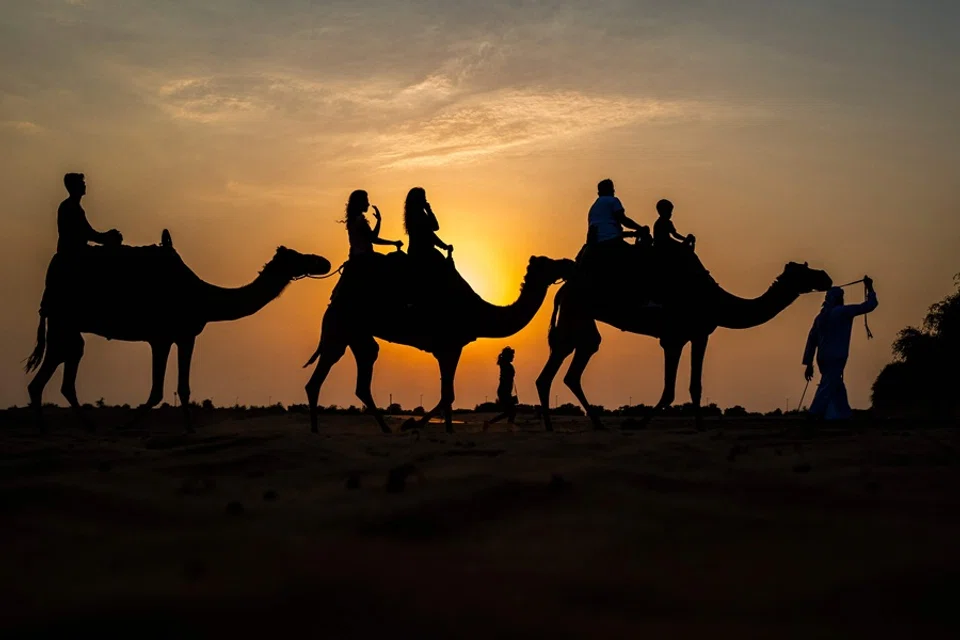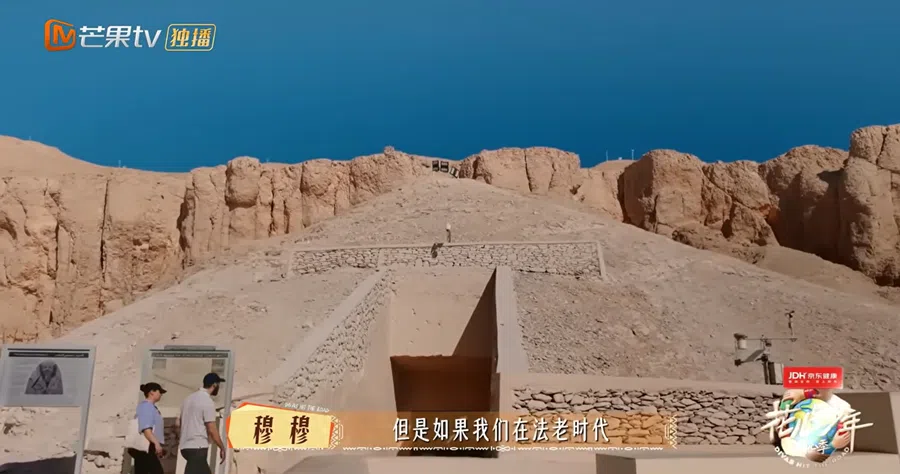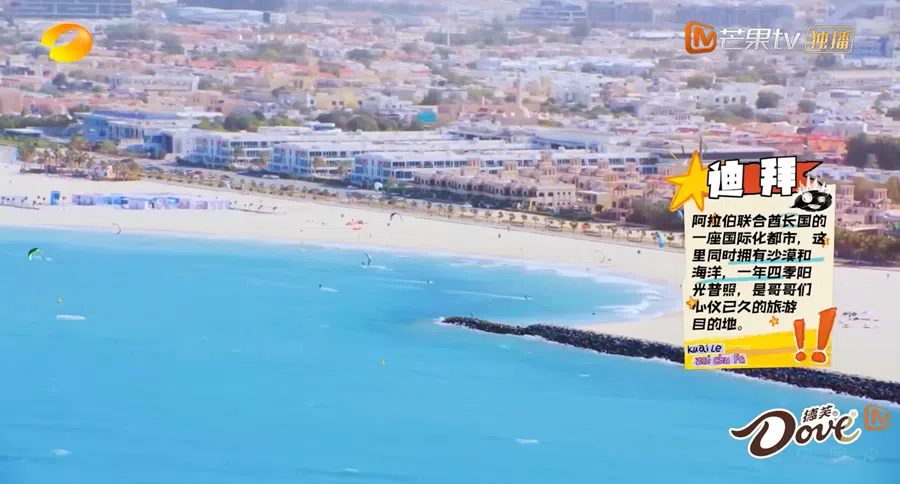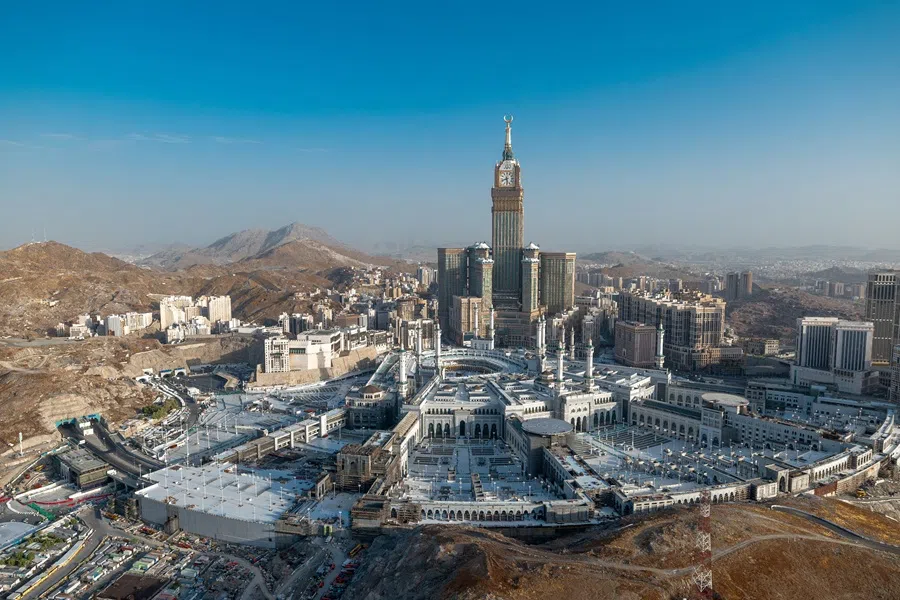From screen to sand: Why Chinese tourists are flocking to the Middle East
Once an exotic and faraway destination for Chinese travellers, the Middle East has become China’s new travel fascination. Driven by the combination of popular reality shows and formal tourism expos, curiosity turns into connectivity, pointing to a new phase of China-Middle East engagement, notes Middle East Institute-NUS research fellow Jing Lin.

Doha’s travel bookings surged 441% year-on-year, while Abu Dhabi saw a 229% jump during China’s 2025 National Day Golden Week. These extraordinary figures signal how rapidly the Middle East is rising on China’s outbound travel map.
The combined Mid-Autumn Festival and National Day Golden Week gave Chinese consumers eight full days to travel abroad. It is the longest national holiday of the year, opening up possibilities for long-haul travel to less traditional destinations.
According to Trip.com, Japan, Thailand, Malaysia, South Korea and Singapore remained the most popular short-haul options, favoured for their proximity and visa convenience. European itineraries also flourished: bookings to Iceland and Norway more than doubled, while Spain, Italy and Germany grew about 70% year-on-year.
Once a distant and exotic destination for Chinese travellers, the region has now become one of the biggest beneficiaries of China’s overseas travel rebound...
Amid this surge, a new trend stood out. The five fastest-growing destinations for international hotel bookings were Saudi Arabia, Egypt, New Zealand, Kazakhstan and the United Arab Emirates (UAE), with three out of the five being in the Middle East. Once a distant and exotic destination for Chinese travellers, the region has now become one of the biggest beneficiaries of China’s overseas travel rebound with expanding air routes, simplified visa procedures and a rising curiosity about Arab culture.
Blending entertainment with soft diplomacy
One key driver behind this surge is culture. As China’s outbound tourism revives, travel-themed reality shows are also making a comeback and increasingly turning their cameras westward. Chinese production teams are venturing abroad to film at world-famous destinations, engage with local cultures and capture human stories of “people-to-people connectivity”.

A standout example is Hunan TV’s Divas Hit the Road Season 7, which featured a cinematic journey through Egypt. The programme traced a classic route from Luxor and Aswan to Cairo, turning ancient temples and Nile cruises into viral moments across Chinese social media.
According to Chinese media, hotel bookings in Egypt doubled during Golden Week, with observers crediting the programme’s popularity as a major catalyst. Many fans and viewers on Chinese social media platforms have been discussing the idea of “following in the footsteps of Divas Hit the Road 7”, using hashtags like “replica itinerary” and “same-route travel”. Cultural landmarks such as temples and museums featured were widely described as “must-visit” or “bucket list” attractions.
The programme also spotlighted China-Egypt archaeological cooperation, showcasing China’s advanced technologies in heritage preservation and excavation, adding a layer of scientific and cultural depth to the travel narrative.
This followed the success of Season 5 — the “Silk Road Season” — filmed in Saudi Arabia and along iconic Belt and Road Initiative (BRI) infrastructure sites, including the Mecca-Medina high-speed railway.
After the season aired, Chinese travel platforms reported a 772% increase in searches for “Saudi Arabia”, while tourism authorities in Riyadh and Abu Dhabi launched coordinated marketing campaigns to capture the momentum. Even Chinese foreign ministry spokesperson Wang Wenbin praised the show, and several Chinese embassies abroad promoted it on official channels, recognising the show’s impact in reshaping public perception.
These programmes blend entertainment with soft diplomacy, offering Chinese viewers an accessible and emotionally resonant introduction to Arab culture and daily life.

Another hit show, Go for Happiness: Mountains and Seas, filmed in partnership with Dubai’s tourism authority, selected Dubai as its sole overseas stop. Celebrity boy band 0713 explored the city’s cultural heritage in Al Seef and the Al Fahidi Historical Neighbourhood, visited landmarks such as the Burj Khalifa, Dubai Frame and Burj Al Arab, and engaged with local communities at the Sheikh Mohammed Centre for Cultural Understanding.
The programme also showcased China-UAE BRI cooperation, including visits to major infrastructure projects like the Hassyan seawater desalination plant and the Maktoum Solar Park, and featured cultural exchange activities at the University of Dubai’s Confucius Institute and a local primary school.
These programmes blend entertainment with soft diplomacy, offering Chinese viewers an accessible and emotionally resonant introduction to Arab culture and daily life. Increasingly, Chinese broadcasters such as Hunan TV are aligning their productions with the country’s broader international outreach goals, making cultural storytelling a subtle yet effective vehicle for advancing China’s global engagement.
... Chinese travel programmes are helping audiences see the Middle East not as a geopolitical headline but as a living, welcoming space.
Supporting people-to-people exchanges
This interplay between screen culture and travel demand reveals an important truth: tourism has become one of the most effective and human-centred forms of diplomacy. By turning distant landscapes into relatable stories, Chinese travel programmes are helping audiences see the Middle East not as a geopolitical headline but as a living, welcoming space. In doing so, they complement China’s growing cultural and diplomatic engagement with the region.
This expanding cultural engagement is not a one-way street but a two-way exchange. Policy has played a critical enabling role in transforming mutual interest into real-world travel flows. To implement President Xi Jinping’s pledge at the 10th China-Arab States Cooperation Forum, which called for ten million mutual tourist visits between China and Arab states over the next five years, China has moved swiftly to deepen tourism cooperation with Gulf countries.
In May 2025, China announced visa-free access for all six Gulf Cooperation Council countries, removing one of the biggest barriers to long-haul travel and triggering what Gulf media outlets described as a “China travel fever”.

In the same spirit, the “Hello China! China Gateway 2025” Tourism Expo opened in Dubai in September, co-organised by China’s Embassy in the UAE and supported by the China Cultural Center. The event brought together over 160 tourism stakeholders from both sides, including national tourism boards, airlines, travel agencies and cultural institutions.
Chinese Ambassador to the UAE Zhang Yiming highlighted the growing number of direct flights and rising passenger volumes between China and Arab countries, reflecting deepening people-to-people links. According to CNBC, airlines have expanded flight capacity between China and the Gulf by nearly 25% compared with last year, a signal of surging demand as well as improved connectivity.
Local governments also seized the moment: Chengdu’s cultural bureau, for example, hosted a dedicated showcase in Dubai, featuring Sichuan opera, face-changing performances and traditional crafts, all aimed at promoting inbound tourism to China while reinforcing cultural exchange.
Taken together, these trends, from popular reality shows to formal tourism expos, point to a new phase of China-Middle East engagement.
Taken together, these trends, from popular reality shows to formal tourism expos, point to a new phase of China-Middle East engagement. What began as curiosity on screen has evolved into a multidimensional exchange driven by policy support, market appetite and cultural imagination.
The 2025 Golden Week offered a glimpse of what may become a defining pattern for the decade ahead: a China that travels further, learns deeper and connects more meaningfully with the Middle East — not just through trade and energy, but through shared experiences of exploration and people-to-people exchange.





